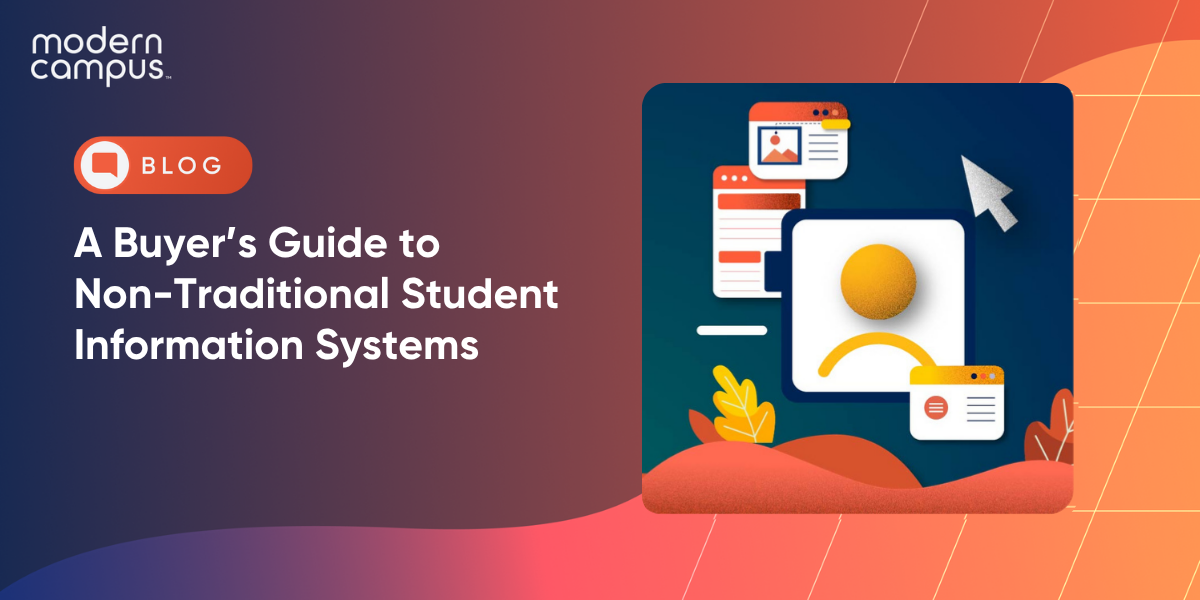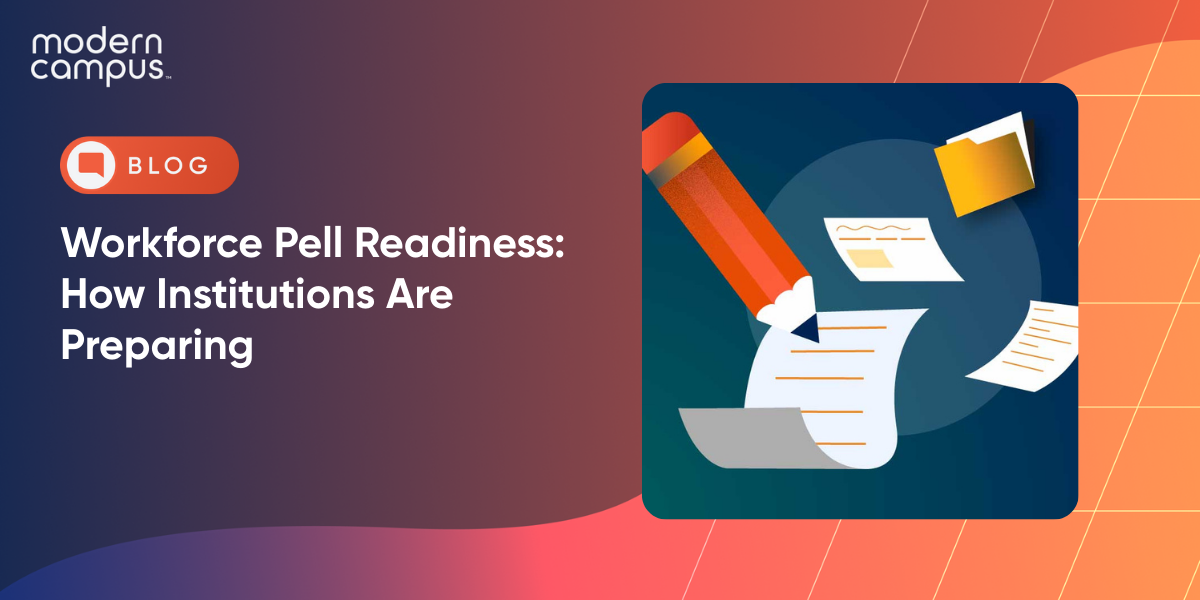Driving Modern Student Success Within Higher Education
Ensuring student success is a top priority for universities and colleges worldwide. Student success is not limited to academic achievement; it encompasses personal growth, holistic development and career readiness. In this blog post, we’ll explore the crucial importance of student success, discuss strategies for improving it and delve into the profound impact it has on student retention.
The Importance of Student Success
Academic Support
Connecting students with academic support services must be an imperative for any institution invested in its students’ success.
A strong academic support system ensures that students have the tools and guidance necessary to overcome academic challenges, excel inside the classroom, stay enrolled and graduate. Higher education institutions should seek to help students develop and perfect the following academic success skills, among others:
- Time management
- Self-discipline
- Stress management
- Written communication
- Study movitation and habits
- Note-taking and other learning strategies
- Exam preparation
- Reading comprehension
- Critical thinking
- Goal planningram
- Public speaking
- Productivity hacks
Colleges and universities can help students acquire these skills through tutoring, academic advising, peer mentors, writing centers, math and science labs, study groups, skill seminars and other outcome-oriented services and activities.
Personal Support
Successful students don’t complete assignments or take exams inside of a vacuum. Their personal lives inevitably affect how well they are able to study, learn and focus on their courses.
Institutions should help students acquire skills and take action to overcome mental, emotional and social challenges. Among other opportunities, the following student services can be invaluable to a learner’s success:
- Mental health counseling
- Financial aid and money management coaching
- Childcare
- Commuter student lounges
- Substance abuse support
- Domestic and sexual violence support
- Nutrition and food coaching
- Food and supply pantries
- Housing assistance
- Wellness and fitness programs
- Multicultural and faith-based communities
- Disability services
- Student health services
Institutions should aim to sustain a welcoming campus environment that acknowledges students as complex individuals and embraces the backgrounds, perspectives and challenges that students bring with them. When students feel supported personally, they are more likely to thrive academically and graduate with confidence.
Strategies to Improve Student Success
Early Intervention
Colleges and universities should take a proactive approach to identifying and addressing student challenges before they escalate. Although it may be impossible to identify every struggling student, many institutions have found that leveraging data analytics and implementing early warning systems can bring many at-risk learners to staff’s attention.
A low GPA, frequent course absences or tardiness, and lack of engagement with co-curricular activities or social events may indicate that a student is struggling and at-risk of stopping out.
Great care should be taken to reach those students, understand the unique circumstances behind their low performance or disengagement and connect learners with appropriate resources or strategies to reduce challenges and stay enrolled. One savvy way that many institutions are now intervening with at-risk students is through text messaging. By communicating via students’ preferred channel—their phones—colleges and universities are showing their level of care for individual learners, building stronger relationships and reducing stop-outs.
Engaging Pedagogies
Engaging pedagogies refer to teaching methods that actively involve students in the learning process, stimulate their interest and curiosity, and promote their active engagement with learning opportunities—including course content and co-curricular activities taking place outside of the classroom.
Engaging pedagogies create an active, participatory learning environment. Faculty can implement techniques like discussion groups, group projects and presentations to keep students engaged and motivated. When students are actively involved in their learning, they are more likely to grasp complex concepts, retain information and perform strongly on assignments and assessments.
In addition to improving the traditional classroom experience, institutions should consider offering a variety of high-impact practices (aka HIPs), such as internships and field experiences, learning communities, research and capstone projects, first-year seminars, study abroad and service learning projects.
These long-term experiences are intentionally designed to foster student success during and beyond a learner’s time at the institution. Educational theorist George Kuh found that HIPs are positively associated with increased GPA and retention, higher rates of student-faculty interactions, improved career readiness, increases in critical thinking and writing skills, and a greater appreciation for diversity.
Technology Integration
Incorporating technology into the learning process can significantly enhance student success. Online learning platforms, virtual labs and educational apps can provide students with additional resources and flexibility in their studies. Moreover, technology allows for personalized learning experiences, catering to individual student needs and learning styles.
Among others, institutions should consider the following tech integrations to support their student success plans:
- Web content management to give students personalized digital experiences
- Campus maps and virtual tours to familiarize students with their environment
- Pathway planning to motivate career planning and showcase the ROI of higher education
- Catalog management to deliver a modern, engaging course catalog
- Curriculum management to always keep your curriculum information up to date
- Class schedule management to optimize course scheduling and drive student access
- Student schedule optimization to help students find and secure their perfect schedule
- Conversational text messaging to grow and sustain student support
- Student engagement platform to foster a greater culture of engagement inside and outside of the classroom
- Volunteer management software to propel and simplify civic engagement
- Non-traditional student management to create extraordinary experiences for lifelong programlearners
The Impact of Student Success on Retention
Higher Graduation Rates
Student success directly correlates with higher graduation rates. When institutions prioritize their students’ goal attainments, learners are more likely to feel invested in their degree programs, have the resources they need to stay enrolled and sustain their motivation to obtain a degree. In turn, strong graduate rates are essential for the institution’s accreditation, funding and reputation.
Positive Reputation
A strong commitment to student success enhances an institution's reputation. When students consistently achieve their academic and personal goals, they become ambassadors for the institution. Positive alumni testimonials can attract more prospective students, contributing to increased enrollment and a positive institutional image.
Nurturing student success is not just an ethical imperative; it’s a strategic advantage. By continually evolving student services to meet modern learners’ needs, institutions can create thriving learning environments in which students flourish and contribute positively to the institution's reputation. In doing so, they fulfill their core mission of educating and empowering modern learners.
Last updated: October 23, 2023




